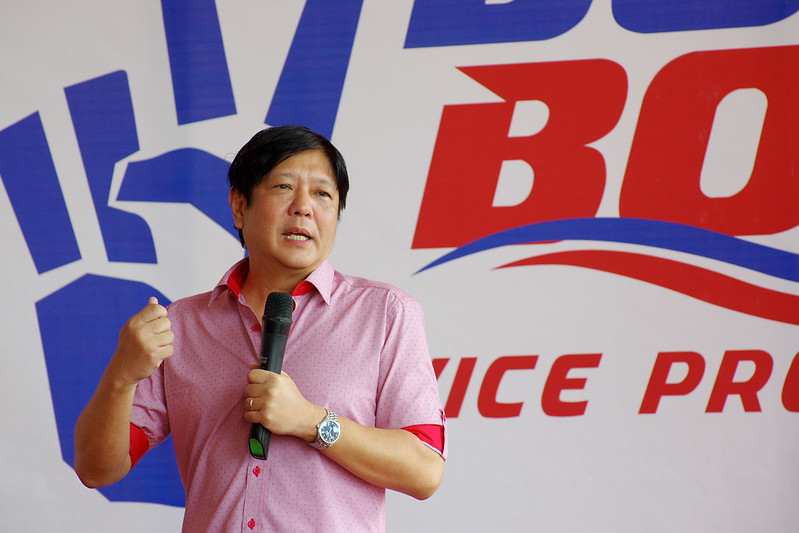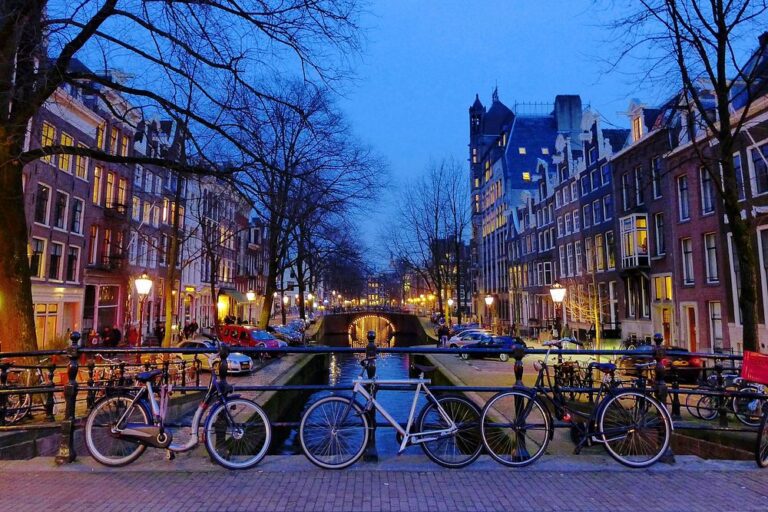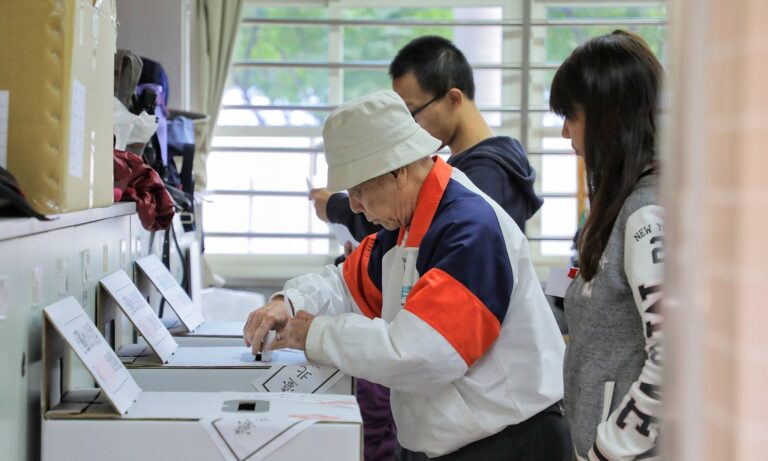In the Philippines, Marcos Jr.’s Win Bodes Well for China, Too

The victory of the son of a former authoritarian leader in the Philippines may be welcomed in Beijing, even as relations remain complicated by territorial disputes.
This article is part of a series from CHOICE focusing on the impact of elections on countries’ China policy.
On May 9, 2022, the Philippines conducted what can be considered its most historic and consequential general elections in decades.
Ferdinand “Bongbong” Marcos Jr., son of deposed dictator Ferdinand Marcos, won the presidency with a landslide of 31.6 million votes (nearly 59 percent of the total). That is more than twice the votes garnered by the opposition leader, Vice President Leni Robredo.
Marcos Jr. will be the Philippines’ first majority president since his father first became president in 1965. (Incumbent President Rodrigo Duterte got only 39 percent of the vote in 2016.)
Notable as well is the fact that Duterte’s daughter, Sara, also won the vice presidency with even more votes than Bongbong: 32.2 million votes, representing 61.5 percent of the vote.
Elements of Victory
How did Marcos Jr. and Duterte win?
In fact, the Marcoses have been trying to reclaim the presidency ever since they came back from exile in 1991. Imelda, the infamously extravagant wife of Ferdinand Sr., ran for president in 1992 but lost, and again in 1998, withdrawing in the end. Meanwhile, Bongbong ran for vice-president in 2016, only losing to Robredo by a hairline.
Thus, one might say that Bongbong Marcos’ victory is the culmination of a three-decade project toward political restoration and redemption.
This feat was made possible by Marcoses’ aggressive use of propaganda to perfume the legacy of their patriarch, Ferdinand Marcos Sr. In the digital age, the winning campaign effectively adapted and relied on social media operations in order to appeal to all sectors of society, especially the youth who were said to have constituted more than half of registered voters.
Marcos Jr.’s campaign especially focused on painting a positive picture of his father’s legacy and whitewashing the bloody and turbulent Martial Law years (1972-1986). The social media operations are so successful that today many Filipinos cling to the false notion that Martial Law led to a “golden age” for the Philippine economy, an era of unparalleled prosperity that subsequent governments failed to replicate. Although this can be easily dispelled by data, the myth nonetheless evoked some sense of false nostalgia among the old and planted false ideas among the youth who were not yet born during the dictatorship.
Analysts point out that the spread of online disinformation was compounded by a broken education system that has continuously failed to teach Philippine history effectively. Educators, for instance, lament the 2014 removal of Philippine history classes in junior high school, and blame such policy for the poor teaching of Martial Law history.
But besides the spread of online disinformation and the Philippines’ education crisis, the Marcos Jr.-Duterte win can also be credited – perhaps even more importantly – to a highly effective message of “unity” on the campaign trail, with Marcos Jr. representing the northern Philippines and Sara Duterte representing the southern part of the archipelago country. The candidacy team-up played to a strong sense of regionalism among Filipinos and worked well to amass support from many local government leaders, who have historically been crucial in determining the outcome of presidential elections.
Some analysts say that it was in fact Sara Duterte who catapulted Bongbong to the presidency and that Bongbong would never have succeeded without his running mate.
A Win for China?
When it comes to foreign policy, the election victory of Marcos Jr. and Sara Duterte might represent a win for China, too.
In the past six years, Rodrigo Duterte pivoted dramatically the Philippines’ foreign policy away from the US and toward China. In October 2016, Duterte publicly announced his “separation” from the US in economic and military aspects. Duterte also referred to China as a “friend” throughout his presidency. At one point he said, “I would say, I need China more than anybody else at this time of our national life.”
Perhaps the highlight of Duterte’s pivot towards Beijing was the two-day visit of Chinese President Xi Jinping in Manila in late 2018, a visit which resulted in more than a hundred investment pledges, agreements, and donations.
Yet only a few of these promises have materialized. Although there was an initial surge in Chinese direct investments – and at one point, China emerged as the Philippines’ top trading partner – public sector investments have fizzled out. In 2016, China promised $24 billion in infrastructure investments, but so far only a handful of projects pushed through, including irrigation and dam projects, as well as two bridges.
Apart from being financed by loans with questionable provisions, the infrastructure projects were also derailed because some involved displacement of indigenous peoples as well as environmental destruction. Arguably even more concretely felt by ordinary Filipinos was the huge influx of Chinese online gambling investments before the pandemic (which “reshaped” Manila in many ways). Finally, there is also a creeping presence of Chinese state-owned companies in strategic industries such as telecommunications, electricity transmission, water distribution, and natural gas.
The strong mandate of Sara Duterte, even larger than Marcos Jr.’s, might be an indication that her father’s foreign policy shift toward China in the past few years – as well as China’s increasing presence in the Philippine economy – is more palatable for Filipinos than the polls would suggest.
Still, the concrete shape of the Philippines’ China policy under Marcos Jr. remains to be seen.
On the one hand, one might reasonably expect that Duterte’s pro-China foreign policy shift will be continued by Marcos Jr. After Chinese President Xi Jinping called to congratulate Marcos Jr., the president-elect said diplomatic relations with China are “set to shift to a higher gear.”
Marcos Jr. has in fact been friendly to China for a long time. For instance, during his time as governor of the province Ilocos Norte, Marcos Jr. is said to have visited China “frequently” in 2005 and 2006 “to drum up business.” Shortly after, in 2007, China opened a consulate in Laoag City, capital of Ilocos Norte – a consulate that Bongbong himself had reportedly lobbied for. Chinese investors also visited Ilocos Norte in search of business opportunities.
More recently, when Bongbong’s nephew took over the governorship of Ilocos Norte, China’s Shandong province donated medical supplies to the province.
This long-standing friendliness may have shaped Marcos Jr.’s initial stance on China that he exhibited during his campaign. At one point, Marcos Jr. remarked that, “If you let the US come in, you make China your enemy. I think we can come to an agreement (with China). As a matter of fact, people from the Chinese embassy are my friends. We have been talking about that.”
Marcos Jr. has also expressed that he is more inclined to pursue bilateral talks with China under Beijing’s conditions. “That arbitration is no longer an arbitration if there’s only one party. So, it’s no longer available to us … bilateral agreement is what we are left with,” Marcos Jr. noted.
Turnaround?
At the same time, however, there are some indications that the new president will not be accommodating on all issues of bilateral relations. The sticking point may prove to be the territorial dispute between the two countries in the West Philippine Sea.
As recently as May 1, 2022, China imposed a unilateral fishing ban in waters that overlap with the Philippines’ Exclusive Economic Zone. On May 31, the Philippines’ foreign ministry filed a diplomatic protest over this development.
Recently speaking on the issue, president-elect Marcos Jr. said, “Our sovereignty is sacred and we will not compromise it in any way.” Moreover, Marcos Jr. promised that he would use the favorable 2016 ruling of the Hague arbitral tribunal to push for the Philippines’ interests.
“We have a very important ruling in our favor and we will use it to continue to assert our territorial rights. It is not a claim. It is already our territorial right,” Marcos Jr. noted.
This seeming turnaround was welcomed by some maritime experts and critics who had previously called Marcos Jr.’s initial pro-China stance a “betrayal.” It also vastly differs from Duterte’s stance toward the arbitration ruling; Duterte once said it was “just a piece of paper” that he would “throw in the wastebasket.”
Moreover, when asked what his foreign policy stance will be, Marcos Jr. described his approach as first and foremost a “pro-Philippines” one. “I don’t work for Washington, D.C., I don’t work for Beijing. I work for the Philippines,” he said.
There is a multitude of factors that could shape relations with China, including the maintenance of diplomatic and security ties with the US (Marcos Jr. has discussed with a top US diplomat a possible “re-signing” or “extension” of the Visiting Forces Agreement), perceptions of ordinary Filipinos toward China (which remain very much negative, according to polls), and further developments in the West Philippine Sea.
Considering the conflicting signals, it might be too early to say what Marcos Jr.’s China policy will look like. The picture will only become clearer after the son of the former dictator assumes the presidency on June 30.
Written by
JC Punongbayan
jcpunongbayanJC Punongbayan, PhD, is an Assistant Professor at the University of the Philippines School of Economics. He is also a columnist for the online news website Rappler.com.


